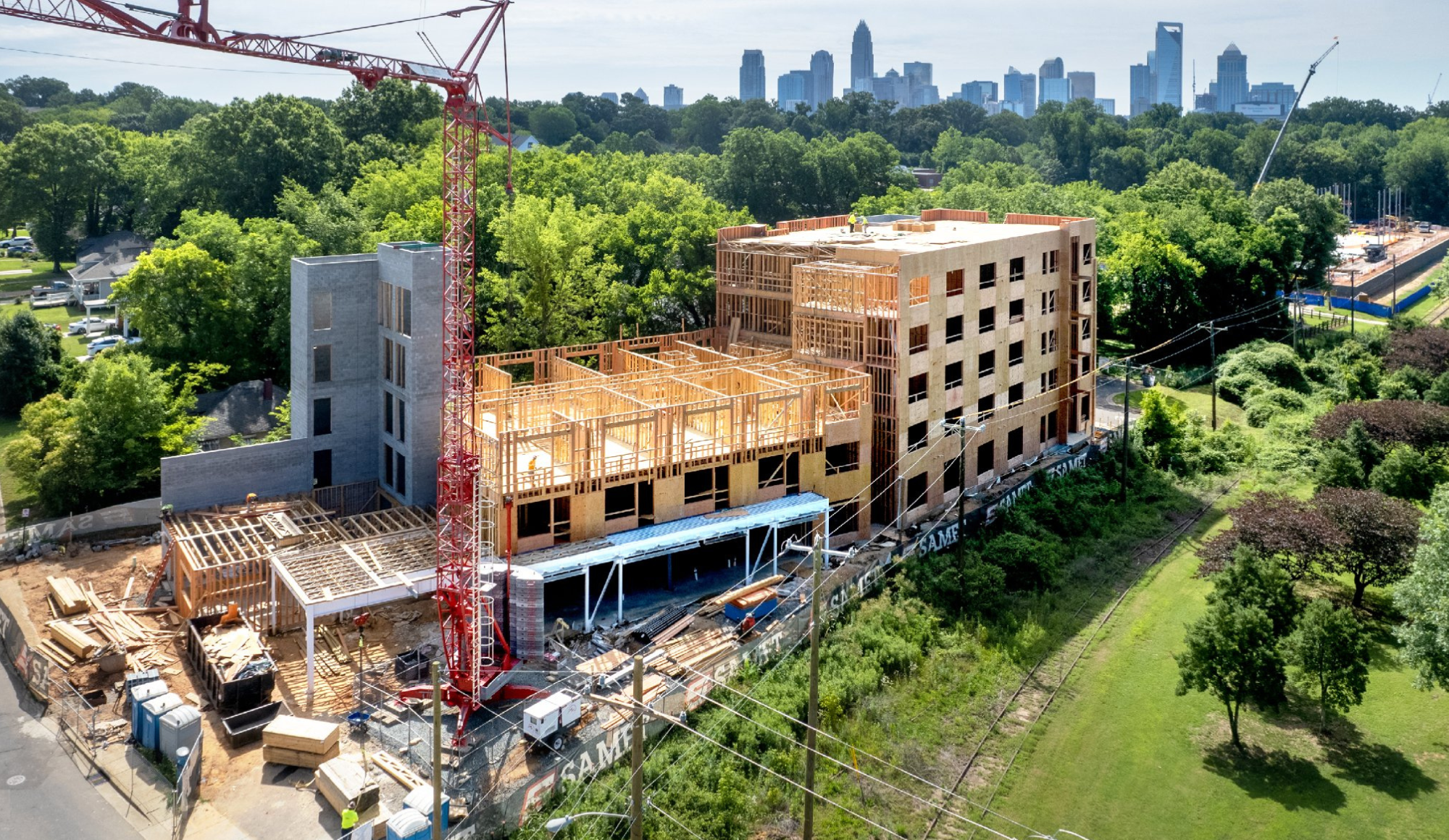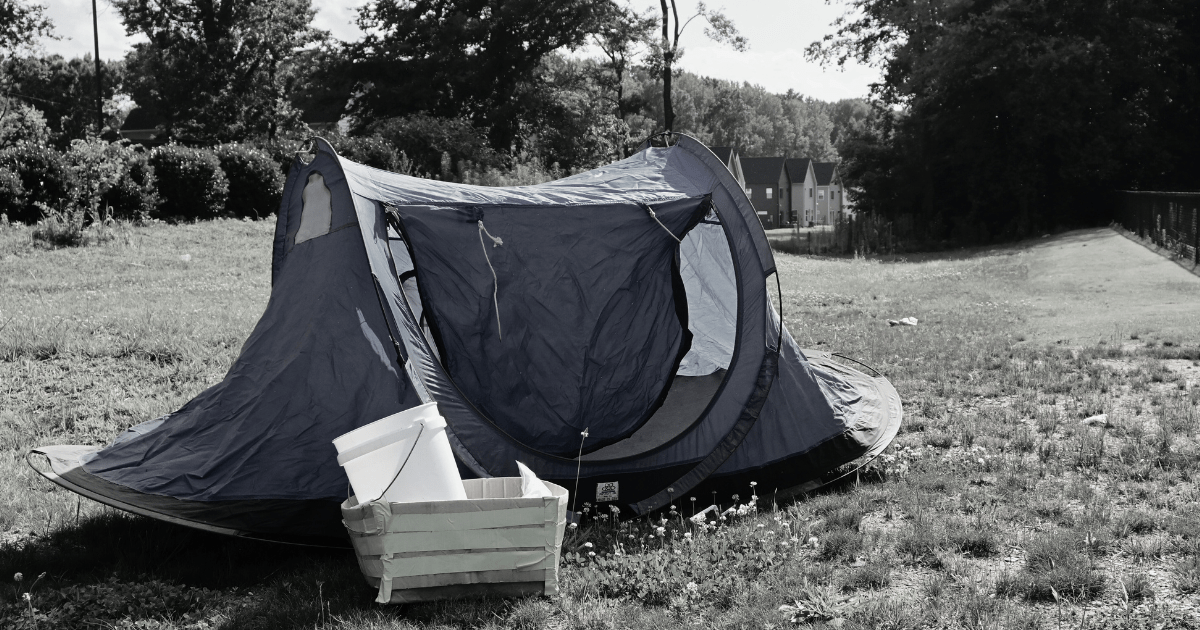
A Home For All: Implementation Plan Overview
O’SHAUNA M. HUNTER, J.D.
Director of Housing Solutions
United Way of Greater Charlotte
This blog post is from the Charlotte-Mecklenburg Housing & Homelessness Dashboard. View the original post here.
This month, United Way of Greater Charlotte (United Way) released the A Home For All Implementation Plan. Building on the priorities identified in the Strategic Framework, the Implementation Plan outlines which priorities to advance first in order to address housing instability and homelessness across the Charlotte-Mecklenburg area.
This Plan represents the culmination of months of rigorous planning, research, and community-wide collaboration. Over the last year, meticulous work has facilitated narrowing down the 99 initial priorities put forth in the A Home For All Strategic Framework to create this Implementation Plan. The plan outlines nine initiatives to move forward over the next four years. United Way, with support from Mecklenburg County, serves as the Enduring Structure leading this work.
To read the A Home For All Implementation Plan, click here.
This blog post will provide an overview of the Plan as well as key takeaways.

Source: A Home For All Strategic Framework
Note: Additional fundraising advisory function to be provided by existing philanthropic and business coalitions, in partnership with United Way.
The overall vision of A Home For All is to create a community where homelessness is rare, brief, and nonrecurring and every person has access to permanent, affordable housing and the resources to sustain it. Building a more robust and far-reaching system of homelessness service provision and affordable housing options – from shelters to single-family homes – requires simultaneous action on several fronts. Our initial priorities are centered on three implementation pillars: Person-Directed Care, Prevention, and Housing Supply.
PERSON-DIRECTED CARE
Charlotte-Mecklenburg’s supportive services ecosystem is robust, diverse, and expansive, but outreach needs to be bolstered. People struggle to independently navigate the system’s many providers and the current funding model lacks flexibility to address people’s individualized needs. Person-directed care aims to reorient service provision around people’s progress on the housing continuum from homelessness and housing insecurity to housing stability. Realizing person-directed care will require new approaches to complement the existing services ecosystem, the Implementation Plan recommends three key additions:
- Systems Navigators
- Assessment & Engagement Database
- Flexible Service Spending Account
PREVENTION
The Charlotte-Mecklenburg area has experienced persistent and prolonged economic growth but the opportunities accompanying that growth have not been spread evenly across the community. This is reflected in the housing market by consistently increasing rents which create pressure to convert both existing affordable apartments and single-family homes to high-end rentals. The result is neighborhoods with high risk of displacement and increasing homelessness. The engagement process identified four key approaches which will be important to transforming the prevention system. Building up prevention initiatives will rely on scaling up existing programs. The key initiatives identified in this pillar all have successful precedent programs and high-capacity service providers that would ease implementation, yet the scale being contemplated by A Home For All is unprecedented.
The initiatives are:
- Critical Home Repair
- Upstream Emergency Rental Assistance
- Legal Advocacy
- Acquisition Strike Fund
HOUSING SUPPLY
For Charlotte-Mecklenburg to meet A Home For All’s goal of providing housing options across the continuum, the financing and tracking of affordable housing stock must shift to allow for the supply of all types of units and beds. As the homelessness crisis has spread across the county, it is critical to understand the size and connection between the subsidized housing stock and service-enriched housing for the unhoused.
The key initiatives identified in this pillar are:
- Property Provider Retention and Recruitment
- Countywide Housing Trust Fund
MOVING FORWARD
In leading the implementation of this effort, United Way will continue to work closely alongside the community to address the full continuum of housing instability and homelessness across the Charlotte-Mecklenburg area. To move the work forward, United Way has created implementation teams, each focused on different components of the work. The teams, consisting of city and county staff, nonprofit leaders, and those with lived expertise, will guide program design and oversee implementation of the initiatives. As envisioned in the Strategic Framework, a Technical Committee will guide the work, providing feedback, identifying connections between implementation teams, and monitoring the evaluation of our shared effort.
SO WHY DOES THIS MATTER?
Charlotte-Mecklenburg’s successful creation of the A Home For All Implementation Plan demonstrates the power and potential of deep collaboration between public and private partners and the critical importance of centering the voices of those with lived expertise in designing solutions to our community’s most difficult challenges. Successful implementation of the initiatives identified in this report will hinge on the continued commitment of all stakeholders to remain aligned. We must sustain our collective focus on addressing the full continuum of housing and homelessness in order to create a community where homelessness is rare, brief and nonrecurring, and every person has access to permanent, affordable housing and the resources to sustain it.
Visit AHomeForAllMeck.org to view the Implementation Plan, learn more about the initiative and sign up to receive email updates or follow along on Facebook, Twitter or Instagram.
O’Shauna M. Hunter is the Director of Housing Solutions at United Way of Greater Charlotte. She is tasked with leading the implementation of the A Home For All effort, Charlotte-Mecklenburg’s plan to address the full continuum of housing instability and homelessness across the community. Prior to joining United Way, she was an attorney with Legal Aid of North Carolina for seven years where she managed the housing unit in Charlotte which prevented and delayed more than 1700 evictions in the year she departed.




